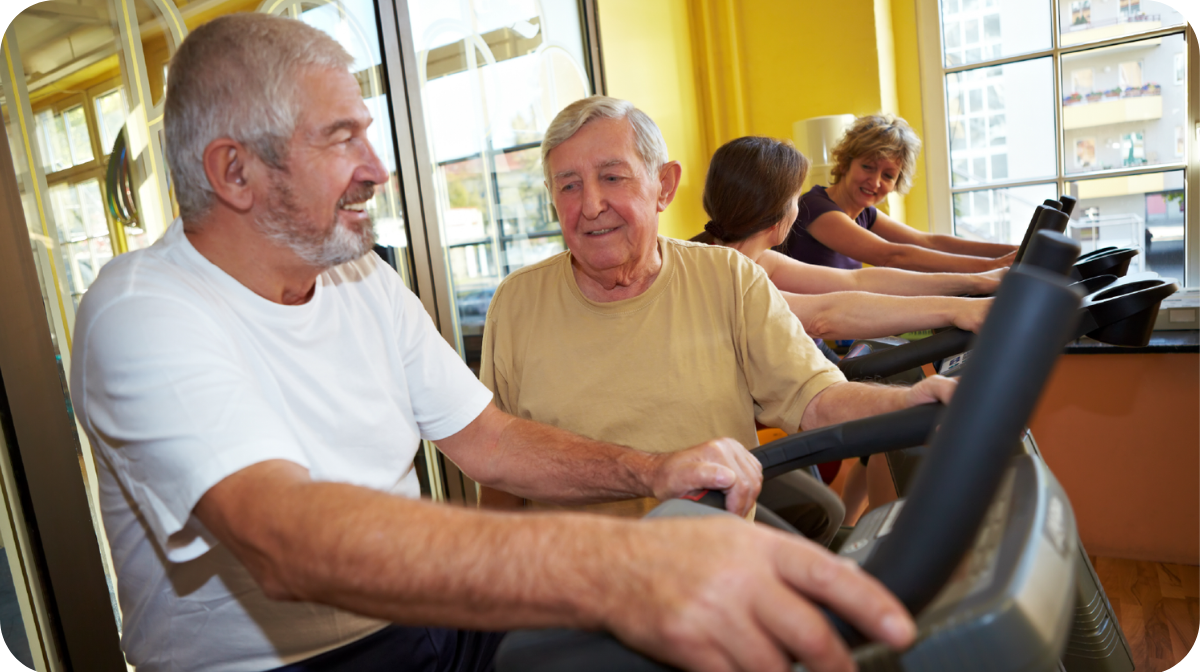Does an elderly woman’s water aerobics class do her any good? Is the septuagenarian helping himself at all by power walking three times a week? Is the local senior pickleball league anything more than a social gathering?
Turns out the answer in all these cases, is a resounding, “Yes.”

A recent metanalysis in the journal Science Daily pooled conclusions and data from dozens of studies that investigated the link between exercise and memory retention in older adults. Not surprisingly, the data overwhelming shows that exercise can improve memory as we age, and may slow memory deterioration as a consequence of illness.
This is not to suggest that exercising is going to reverse the symptoms of a serious disease such as Alzheimer’s. But some dementia and memory loss can be a normal part of aging. Cognitive issues are worsened by a sedentary lifestyle. These studies show that regular exercise is an easy way to significantly slow progressive age-related memory deterioration and, in many cases, improve memory performance.
That begs the question of what exercise, and how much. Many studies cited in the analysis focus on regular moderate exercise (activity that raises your heart rate, but is not be so taxing that you can’t speak). However, I recommend older adults mix up their physical activities. Specifically combining three types of activity.
- High-intensity. A 2019 study found that high-intensity exercise (the type called high-intensity interval training, or HIIT) improved memory in the senior citizens who participated in the research. One of the most popular types is Tabata, consisting of calisthenic exercises done at high intensity, and alternated with short periods of rest. Beginners 50 to 60 elevate to a heart rate between 85-102; 60+ individuals keep it in the range of 80 to 96. HIIT is best done in a class or with a trainer until you’ve developed a program that suits you.
- Moderate intensity. Most studies on mice and humans have focused on moderate intensity exercises, such as water aerobics, walking, and bicycling. The beneficial effects appear to compound based on the consistency of the exercise routine.
- Weight training. I would also recommend that senior citizens of any age consider moderate weight training three times a week. This should involve light weights and high reps. Weight training can round out the fitness picture, helping older adults retain muscle and bone mass, and aiding balance—potentially heading of the falls that can be so life-changing for elderly individuals.
My recommendation? If you’re capable of it, pursue a HIIT exercise program at least three times a week. Then, at least two other days, do moderate exercise, such as a brisk long walk or swimming. Mix in a simple (three different exercises) full-body weight training routine three times a week. Find an exercise you enjoy or that can be done with friends; both of those factors will increase your likelihood of following through on a regular exercise routine.
Of course, the benefits aren’t just limited to memory. Regular exercise as we age will fight age-related sleep disruption, improve joint health, help cardiopulmonary function, and head off many age-related illnesses.
There is one important caveat to all this: consult your doctor first. I can’t stress enough that anyone seeking to start a new exercise regimen should talk to their physician. Someone who knows your medical history will be best suited to steer you in the right direction when it comes to exercise, so that you avoid injury or exacerbating any existing physical conditions. Also keep in mind that trying to do too much can result in serious injuries that may not only impede future exercise, they can cause chronic issues. Once you get the green light from your primary healthcare professional, find a trainer or fitness classes focused on elderly exercise.
Share some love if you like this post!





